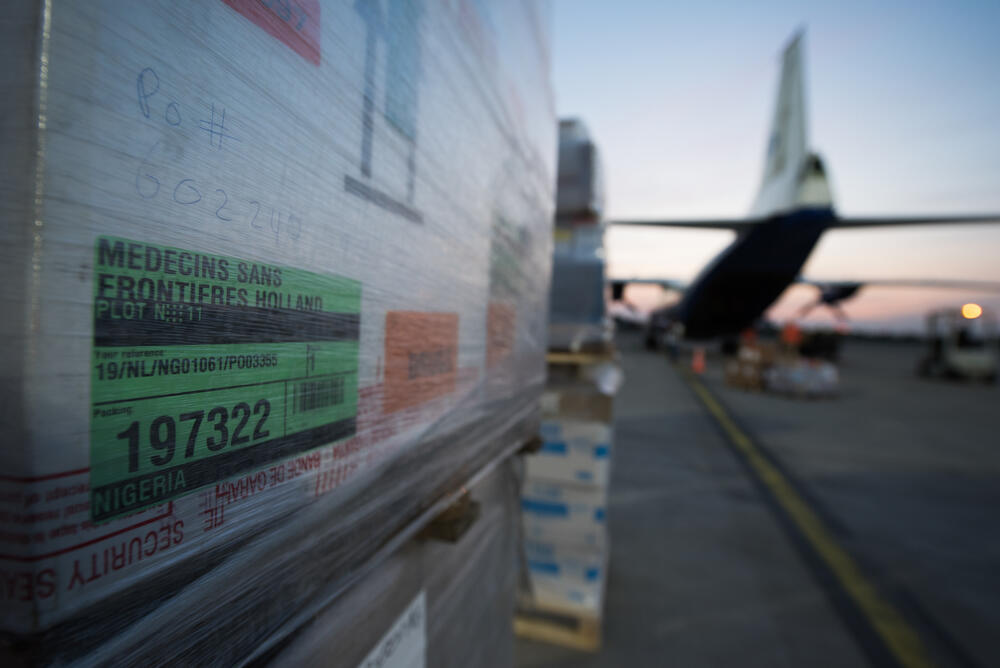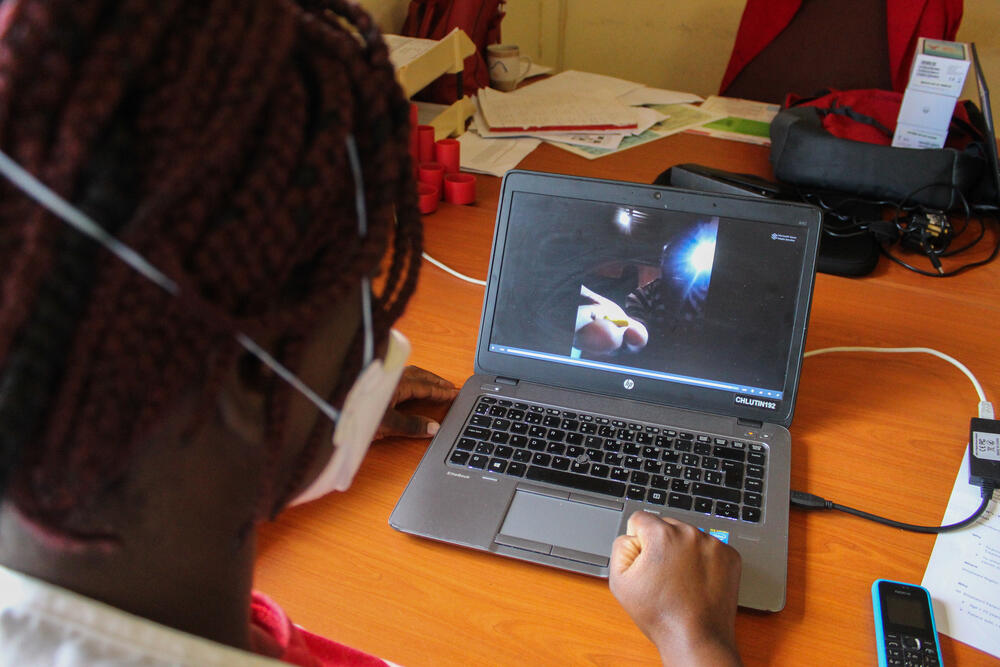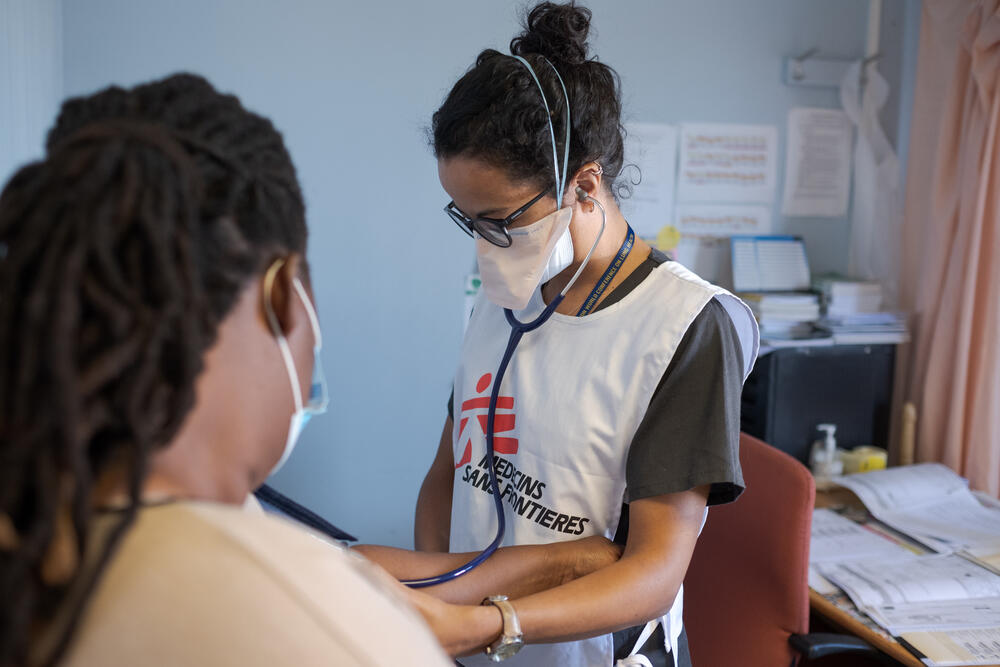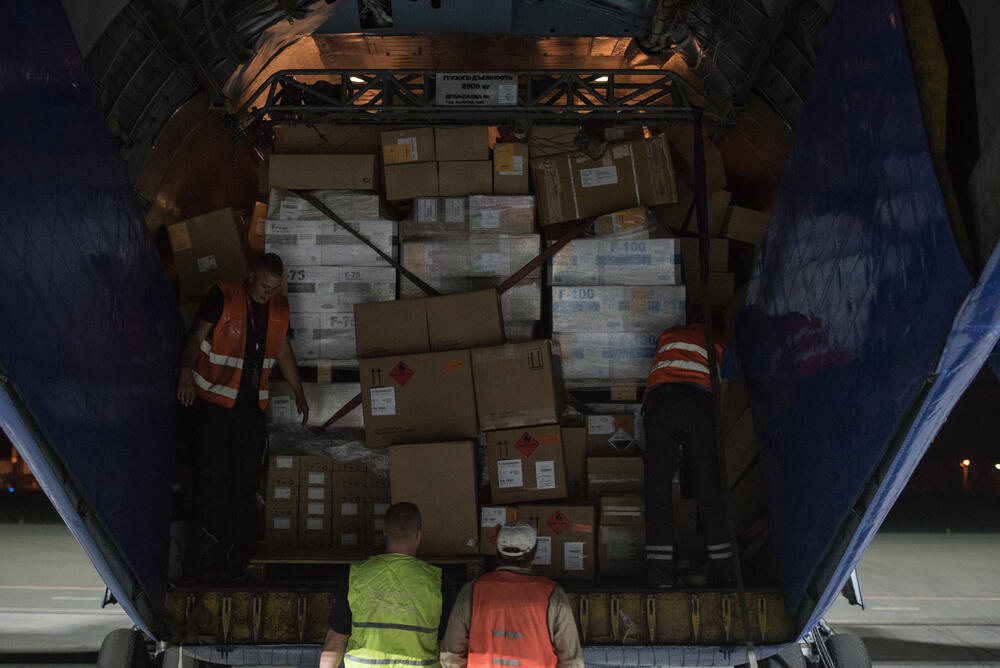COVID-19: “It was never an option for us to drop our regular medical services”
The impact of the COVID-19 pandemic has been felt in every one of MSF’s projects. Faced with challenges on a scale never experienced before, teams, like frontline healthcare workers everywhere, have had to quickly adapt to this new reality.
“Getting the pandemic under control is clearly a priority for everyone, but it was never an option for us just to drop our regular medical services and focus solely on COVID-19,” says Kate White, who’s the medical lead on our taskforce for the disease.
"Keeping essential health services available and accessible is vital to prevent losing even more lives"
“We know from decades of experience in other outbreaks that the knock-on effects on the rest of the health system can be just as, if not more, devastating than the disease itself.
"Keeping essential health services available and accessible is vital to prevent losing even more lives, whether from malaria, measles, malnutrition or complicated pregnancies.”
Finding creative solutions
Around the world, our teams have been trying to find creative ways to keep healthcare accessible and to support frontline healthcare workers to care for their communities.
Some remarkable initiatives are underway, from increasing the availability of telemedicine, to providing online infection prevention and control training for care home workers, to managing WhatsApp groups of traditional healers.
Tuberculosis
Among the most at-risk for COVID-19 complications are people with underlying lung disease such as multidrug-resistant tuberculosis (MDR-TB).
In Eswatini, our team is reducing the risks for these vulnerable patients by bringing care closer to their homes and limiting unnecessary journeys by public transport to health centres.
The majority of our 40 patients with MDR-TB are now using "video observed therapy". We’ve given smartphones to patients so they can film themselves taking their medication and send the video to be checked by a nurse.
Childbirth and pregnancy
In our maternal health projects in countries including Nigeria, the Democratic Republic of Congo (DRC), Sierra Leone and Bangladesh, we are ensuring that women can still receive the care they need by engaging with trusted people in their communities – such as local health workers and traditional birth attendants – to identify when a woman needs to go to hospital because of complications.
We have reduced by half the recommended number of antenatal consultations for pregnant women to have in our clinics.
Diseases and infections
In our HIV, tuberculosis, hepatitis C and non-communicable disease projects in countries as diverse as South Africa, Ukraine, Pakistan and Cambodia, we have reduced routine consultations and distributed essential drugs to patients for longer periods (one to six months depending on the person’s health condition) so that they do not have to visit a health facility as often.
At the same time, we are ensuring that patients receive follow-up through phone consultations, messaging apps and peer support networks.
Hotlines for mental health
Meanwhile, many of MSF’s mental health services, including in El Salvador, Palestine and India, now offer telephone hotlines for existing and new patients, with counsellors and psychologists providing consultations by phone.
"While the lockdown has made lives much harder, in a way it has enabled more people to seek help"
In Kashmir, where the COVID-19 lockdown has prevented MSF teams from running in-person mental health clinics, clinical psychologist Ajaz Ahmad Sofi says phone counselling has actually opened up the service to many more people.
“Many of my new patients say that they have been avoiding visiting a counsellor because of a fear of being seen by relatives, neighbours or friends around the clinic.
"So while the lockdown has made lives much harder, in a way it has enabled more people to seek help, while allowing us to continue to provide a much needed medical service.”
Fear of infection
People may put off seeing a doctor for any number of deadly medical conditions due to the difficulty of moving around during lockdown, or from fear of becoming infected with COVID-19 in a health facility.
MSF teams have already seen a significant decrease in the number of patients coming to our facilities – in some cases by up to 50 per cent – in projects in Bangladesh, DRC, Afghanistan, Nigeria, Sierra Leone and Egypt.
In order to ensure that health facilities are safe places for staff and patients and do not amplify the pandemic, MSF has implemented specific COVID-19 infection prevention and control measures in all our clinics and hospitals, and has supported health authorities in many countries to do the same in their facilities.
“In many places where we work, the MSF hospital or clinic might be a community’s only option for essential healthcare for hundreds of kilometres,” says Kate.
“People need to be able to trust that when they come to us – whether they are unwell with COVID-19, want to get care for their child with diarrhoea or malaria, or safely deliver their baby – they won’t come to more harm than if they hadn’t come to us in the first place.”

Help us prepare for the next emergency
Insurmountable challenges
Unfortunately, in some cases, the challenges to continue providing care are currently insurmountable.
In Syria, El Salvador, Malaysia and Mexico, teams have had to temporarily reduce or suspend mobile clinic activities. In Iraq, we have halted admissions of new patients into the programme of the non-communicable disease.
In Monrovia, Liberia, we were forced to suspend paediatric surgeries due to staffing shortages caused by travel restrictions.
In Pakistan we have suspended cutaneous leishmaniasis consultations in Balochistan and Khyber Pakhtunkhwa, as well as temporarily closed a maternity hospital in Peshawar. In Zamfara, Nigeria we have temporarily closed most of our activities responding to lead poisoning.
With such uncertainty about our future capacity to guarantee a consistent supply of international staff and medical supplies, including personal protective equipment, all new planned initiatives have been put on hold. This includes the opening of a new maternity and paediatric facility in Qanawis, Yemen, where women and children continue to suffer the impact of an intense conflict.



